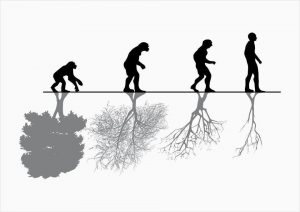The term ethnography is centered around understanding the culture, customs, and way of life in a community, and as such this keyword is deeply connected to the field of anthropology. Deborah Bird Rose, author and professor in Environmental Humanities at UNSW, describes the diverse movements that have arisen around how a researcher conducts ethnography amidst our rapidly changing world. These movements are strongly connected to numerous other keywords discussed in class, such as globalization, where communities who previously did not have access now have the ability to communicate and interact with those of other cultures and share customs and ideas.
The cornerstone of this article is its emphasis on “multispecies ethnography”. Research has shown that many communities of indigenous peoples are intricately entangled with the surrounding world of nonhuman beings, a facet of life that is rapidly altering due to climate change. A student in our class mentioned the importance of the food chain in the animal kingdom, and how extinction of one species could drastically impact an entire ecosystem. Social interactions, whether they be human to human, animal to animal, or animal to human, will likewise become altered. In applying this knowledge to ethnography, one realizes that climate change not only affects human health, but also our social relations with each other and with the nonhuman world. We are all coping with death and the enormous loss of biodiversity we’ve grown attached to, as a result, the environmental humanities are becoming more necessary to describe both our changes and nonhuman changes in behavior.
I believe that the following picture represents how the vibrancy of interactions of living beings with one another, whether they be plants or primates, has faded due to human history on earth.
 Works Cited
Works Cited
Adamson, Joni, William A. Gleason, and David N. Pellow. “Education.” Keywords for Environmental Studies. New York: New York UP, 2016. 89-92. Print.
UniversalPartnership.org. Web. 27 Jan. 2017. <http://universalpartnership.org/exploring-human-nature-part-2/>.